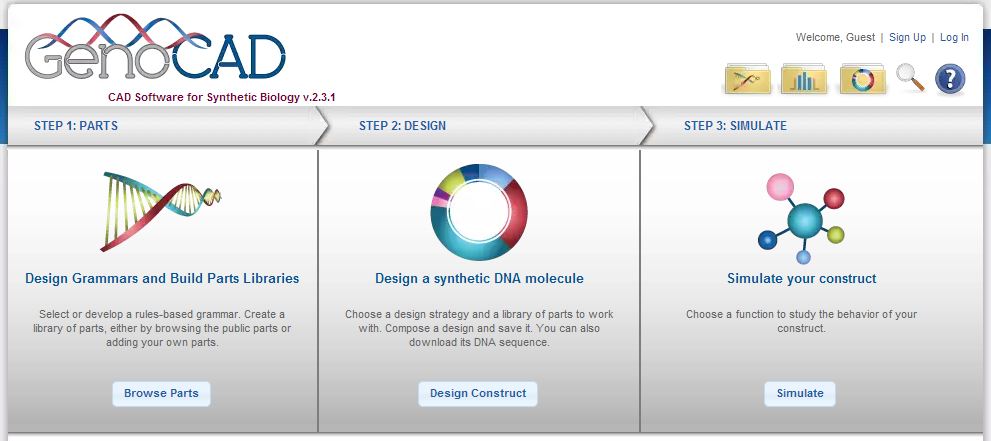VirginiaTech And MIT Develop Languages To Program Synthetic Biological Systems
GenoCAD will help to design of protein expression vectors, artificial gene networks, and other genetic constructs. Synthetic biologists have a large library of naturally resulting and synthetic parts to design and build different living systems. These parts are a segment of a DNA language and this language also consist of a set of design rules or "grammar" which govern the language. To allow scientists to generate a wide range of constructs, the parts have to be expressive. But they should also be focused enough to limit the odds of designing flawed constructs.

Jean Peccoud, the principal investigator of the GenoCAD project compared software applications and biological applications said that just like software applications require different languages such as HTML, SQL or JAVA similarly synthetic biologists also require different languages for different biological applications. He added that they intended GenoCAD to work as a framework which will allow users to gain expertise in a particular domain in languages they are comfortable in.
As the number and complexity of components engineered by synthetic biologists increases, researchers are capturing present knowledge by defining some norms. They suggested that generating grammars should be the first step to standardize a wide range of genetic parts which could be combined to develop advanced products. Oliver Purcell, an associate professor in the Department of Electrical Engineering and Computer in MIT said that developing a grammar in GenoCAD is similar to the process of writing a review paper, you start with the headings and you dig deeper-and-deeper into the details.
The researchers hope that this type of portal will help in the collaboration of work across disciplines and institutions to grow a team approach to the pressing scientific challenges present.
Source: #-Link-Snipped-#
